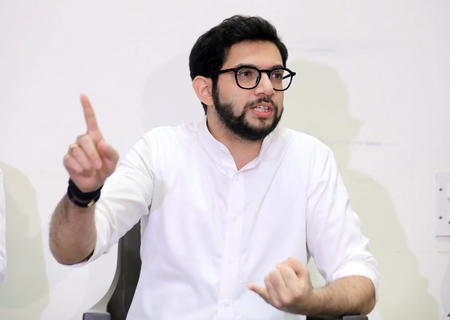
Chennai, Dec 25 (IANS) The PMK, the political arm of the influential Vanniyar community, has offered support to the DMK government if it implements a 15 per cent internal reservation for the Vanniyar community within the Most Backward Class (MBC) quota.
This move has the potential to significantly alter Tamil Nadu’s political landscape. The PMK is, presently, allied with the BJP as part of the National Democratic Alliance (NDA).
PMK president Anbumani Ramadoss recently announced that his party would provide unconditional support to the DMK in the 2026 Assembly elections if the reservation is implemented.
He also stated that the PMK would not demand any seats for contesting as part of this alliance. Tamil Nadu currently has a 69 per cent reservation policy, which includes 30 per cent for Backward Classes, 20 per cent for Most Backward Classes, 18 per cent for Scheduled Castes, and 1 per cent for Scheduled Tribes.
The PMK has argued that after the Supreme Court upheld the Arundhathiyar sub-quota within the Scheduled Castes category, a similar internal reservation should be extended to the Vanniyar community.
The Vanniyar community, which has a significant presence in northern Tamil Nadu, wields considerable political influence.
An alliance between the PMK and DMK could bolster the ruling party’s chances in the 2026 Assembly elections, potentially paving the way for an easy victory.
In the 2024 Lok Sabha elections, PMK candidate Sowmiya Anbumani contested in the Dharmapuri constituency, finishing second. She lost to DMK’s A. Mani by a margin of 21,300 votes. Sowmiya, the wife of PMK president Anbumani Ramadoss, secured 4,11,367 votes, while Mani received 4,32,667 votes. AIADMK candidate Dr R. Asokan polled 2,93,629 votes, placing third.
The PMK contested 10 seats in the 2024 Lok Sabha elections and garnered a 4.33 per cent vote share in the state elections.
Anbumani Ramadoss emphasised that the internal reservation for the Vanniyar community is not merely a caste issue but a matter of social justice. He pointed out that many Vanniyar community members live in impoverished conditions, working low-paying jobs such as road construction and bricklaying.
He argued that an internal quota is essential for their educational and professional progress. He further criticised the DMK government for allegedly hesitating to conduct a caste-based census in Tamil Nadu.
According to him, such an enumeration would reveal “harsh truths” and lead to demands for proportional representation in electoral constituencies based on population size. Ramadoss also highlighted that some other states in India have already completed caste-based censuses as part of their commitment to social justice.
The Vanniyars are a dominant community in Tamil Nadu, particularly in the northern districts. Historically classified as Backward Class, they were re-designated as Most Backward Class after a series of successful agitations in the 1980s.
This PMK’s shift is aimed at securing greater educational and employment opportunities under the state’s reservation system. If the DMK implements the 15 per cent internal reservation for Vanniyars, it could lead to a political realignment in Tamil Nadu.
A PMK-DMK alliance would provide the DMK with a strong base of support in northern Tamil Nadu, strengthening its position in the 2026 Assembly elections and potentially extending its rule in the state.
–IANS
aal/dpb





